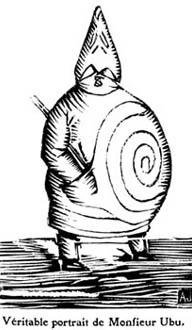User Login |
Naropa Alumni Poetry RecitalNaropa Alumni Poetry Recital St. Mark's in the Bowery 14 April 02008 by Sally Zebrick
I skirt around the church and walk into the reading space an hour late. My timing is perfect - people are fleeing in the pause between presentations, and I slip into a vacant seat. I'm glad I avoided the entry fee - the $7 was better spent on liquor, anyway, as I'm not counting on the Naropa school to be more interesting to listen to than a man playing a lively game of twenty questions with a bottle of bourbon two blocks away. "Is it shiny?" "Is a liquid shiny?" "Does it have leaves?" "No!" "Does it contain a lot of water?" "Um.... yeah ok." "Is it something you buy often?" Oh yeah!" In some respects it is unnatural to go to a poetry reading by descendents of an Apollonian school. Words that most likely had been meditated on in silence and committed to the neutral surface of a page suddenly exist as one factor competing with many: physical persona, dialect, space. You form impressions of a poet the same way your mind flash forms impressions of people you pass in the street. The polished youths stepping up to the podium could be any anonymous, dry-cleaned blondes walking around Manhattan--surface-concerned, taking care to stand out by fitting in. They stand before elegantly paneled windows in a gracefully proportioned white room speaking to a polite audience of equally clean and well-dressed connoisseurs, most of whom turn out to be Naropa graduates themselves. The first reading is something I'll call "Feathers." A bout two stanzas in I don't regret relinquishing the variety of the street. The poet is a woman, I want to say her name is Amy, and her grasp of language is masterful. The poem is a fable. Deceptively simple description of a deceptively simple situation ("the young woman" "the young man" "the watch" "the clock" "the library") unfolds through repetition into a surreal meditation on time, self, life. If it were a black-and-white film with a soundtrack of rustling leaves and violin, costumes after Edith Head, dialogue in French, it would be no more poetic. The words alone accomplish such an effect. Following that reading the podium position rotates through the outlying rows, a poet standing up and a poet sitting down. The audience thins out a bit at each exchange. There is something about a diseased ear and death, some exercises in disjointed phrases, something about a wasp. Actually there are a couple of wasps. A young man with slick burnished gold hair says the word "fuck" a couple of times, looking angry at the nonsense he is reading but then, when his words are more coherent, pleased with himself. On his thirty-first birthday cake, to the tune of his mother dying or losing memories or being very ill: "Fuck the mits. Grab that motherfucker with your bare hands." Indeed. A young woman who looks and talks like any new, well-to-do, city-living teenager tells us to close our eyes and then does her best to transform us, with modest but true success. We are a boy on the ceiling. We are a ladder. We are a ladder's unstable half. She wears bolder colors than the adults, a sparkling scarf, and her hair is dark brown. Marathon poetry readings with multiple artists tend to get somewhat jumbled up in one's head, as you can see. Only one association per poet, please. There was an intermission. I chose to stick around to see what poor sods got stuck with the later time slots. Several moments of talking and resting and waiting and then I found that a slightly more bohemian group had been shuffled into the mix. First up was a teacher, a young man with a bass-playing accompanist. He seemed very ardent, almost flamboyant in his insistence that it be done right, that we be entertained and understand. He had the air of a frustrated stand-up comedian. I don't remember the poem, but I remember his exposition on the meaning of its title. Following him an anarchist DJ with accompanying stereo mix. Following the anarchist an authoress of what might have very studied and deliberate sentimentalism, autocentrism, and naivete. These individuals probably would have been more fun to party with than their more classically accomplished predecessors, but this was a poetry reading, seemingly endless, and it was getting late. I seized the trough before the oncoming crest of the next reader and left. Back to the brick garden, to the air and ads and black, busy streets. The man sitting on his stoop playing twenty-questions would not have been in such disparate company after all. "You're very smart you win. I know you want to try again. It's time for me to turn in. Gotta take me and my grandmother tomorrow, Charlie. Good night."
categories [ Poetry Reviews ]
login or register to post comments | printer friendly version
|
